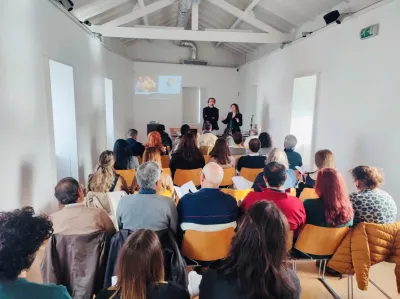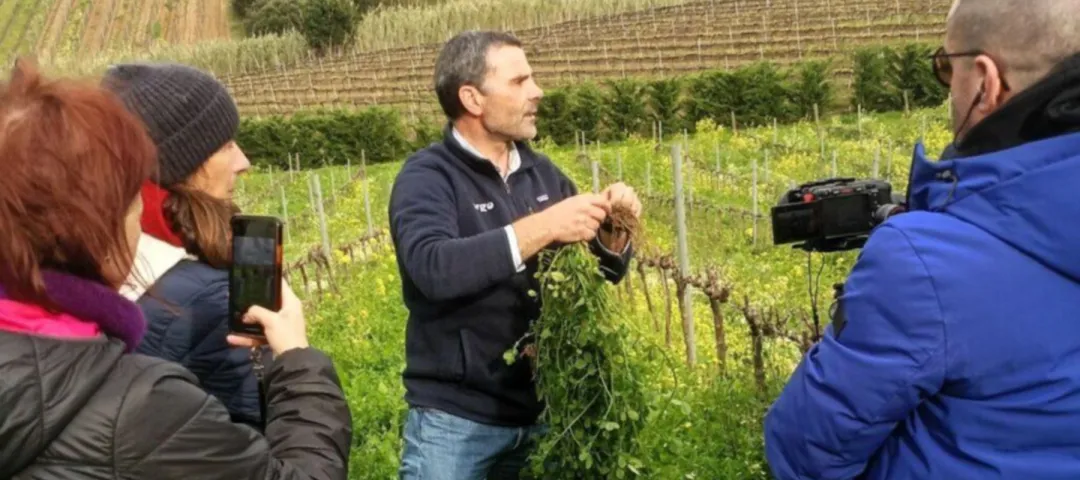General information
RDP Measure
- M20: Technical assistance
Beneficiary type
- Public authority / body
Summary
The Lisbon Metropolitan Area (AML) has a diversity of local markets and fairs that play a very significant role in supplying the population with fresh produce. However, the standardisation of eating habits threatens people’s connection to food and its regional and local origins. This poses a challenge for the long-term relevance and sustainability of local markets and fairs, requiring specific intervention to revitalise them. The AML-ALIMENTA project was launched by AML to provide regional coordination in sustainable food policies, local production, and nutrition education across its 18 municipalities. It involved organising educational activities for schools, developing strategies, and establishing a network to advance food sustainability.
Results
- The project reached 31 schools across 13 municipalities, involving approximately 500 students, teachers and canteen staff.
- Organised seven food workshops at local markets and carried out 142 surveys with producers at 28 local markets.

Promoter
A2S Associação para o Desenvolvimento Sustentável da Região, Área Metropolitana de Lisboa, ADREPES, DRAP LVT / CCDR LVT
Funding
RDP support: 246 626 (EUR)
EAFRD: 194 835 (EUR)
National/Regional: 51 791 (EUR)
Ressources
Context
The Lisbon Metropolitan Area (AML), across its 18 municipalities, has a diversity of local markets and fairs that play a very significant role in supplying the population with fresh produce. These spaces, which play a fundamental role in the history and identity of the areas where they are located, have lost some of their affluence, and are currently facing a series of challenges that threaten their long-term relevance and sustainability, requiring specific intervention to revitalise them. This project aimed to give greater prominence to the Mediterranean diet, sustainable food, and the fight against food waste through the implementation of an enhancement strategy based on a holistic approach, capable of raising the profile of local markets among consumers and the general population.
The AML-ALIMENTA project is one of 22 initiatives under the National Plan for Balanced and Sustainable Food (PNAES), and received funding from Portugal’s 2014-2020 Rural Development Programme. PNAES was established as a response to the standardisation of eating habits and social inequalities caused by globalisation, which threatens people’s connection to food and its regional and local origins. Launched by the Lisbon Metropolitan Area (AML) in its role as an intermunicipal association, AML Alimenta embodies AML’s regional coordination in sustainable food policies, local production, and nutrition education across its 18 municipalities.
Objectives
The AML Alimenta project aimed to contribute to the operational objectives of the PNAES, namely to:
- encourage the consumption of national, regional and local products, in balance with the principles of the Mediterranean diet.
- improve the nutritional quality of the food supply and combat food insecurity.
- increase the level of adherence to the Mediterranean diet by 20% by 2030.
- promote and valorise endogenous, certified-quality products and the Mediterranean diet.
- educate people on healthy and sustainable eating.
Activities
The project involved the following activities:
- SustentAÇÃO - AML Alimenta - Organising a school-based initiative to train and sensitise the school community (students, teachers and cafeteria staff) in the Lisbon metropolitan area on the themes of food sustainability, the Mediterranean diet and combating food waste. This initiative took place between October 2023 and February 2024.
- Local Market Enhancement - Developing a strategy to strengthen local food markets, supporting regional producers and promoting the Mediterranean diet. The strategy is the result of an extensive process of consultation with agricultural producers who sell in local markets and the managers of these spaces.
- Food Transition Strategy - Creating a framework for sustainable food production, distribution, and consumption, integrating urban and rural partnerships in AML. The Food Transition Strategy is a comprehensive plan aimed at strengthening the regional food system, promoting sustainable food production, and ensuring that 15% of the food consumed in the region is locally produced.
- AML Agri-Food Parks Network - Establishing a network to advance food sustainability. It involves over 20 partners, including local authorities, national agencies, universities, promoter associations, cooperatives and NGOs. The network is coordinated by AML, the Regional Coordination and Development Commission for Lisbon and Tagus Valley (CCDRLVT), and the Institute of Social Sciences of the University of Lisbon.
- Public Awareness Campaigns - Organising events and educational programs to encourage healthy eating habits and reduce food waste.
Main results
- 25 visits were conducted at 31 schools across 13 municipalities, engaging approximately 500 students, 80 teachers, and 80 canteen staff members.
- AML-Alimenta organised seven food workshops at local markets.
- 142 surveys were carried out with producers at 28 local markets in the Lisbon Metropolitan Area as part of the consultation for developing the Local Market Enhancement Strategy.
- A brief guide was created, outlining best practices for planning the use of phytopharmaceuticals; improving local production and presentation at the point of sale; highlighting the importance of identifying farm locations; and ensuring hygiene and food safety in agricultural practices.
Key lessons
- Promoting local production, encouraging consumers to embrace proximity-based consumption, and exploring alternative models that support healthy, sustainable food systems while combating food waste are essential for large metropolitan areas. This requires the development of strategies focused on effective promotion and marketing, modernising food supply chains, diversifying food options, strengthening networks and enhancing environmental sustainability.
Márcia Mendes

